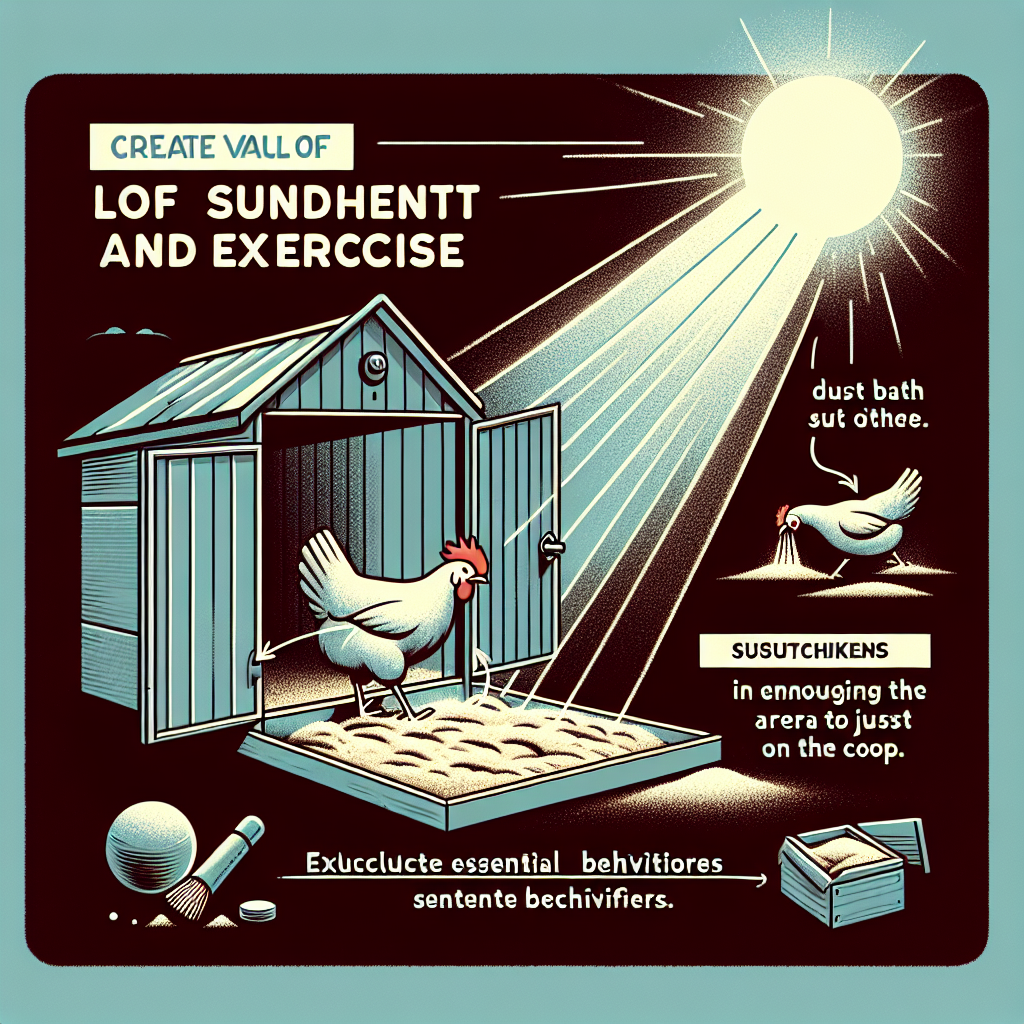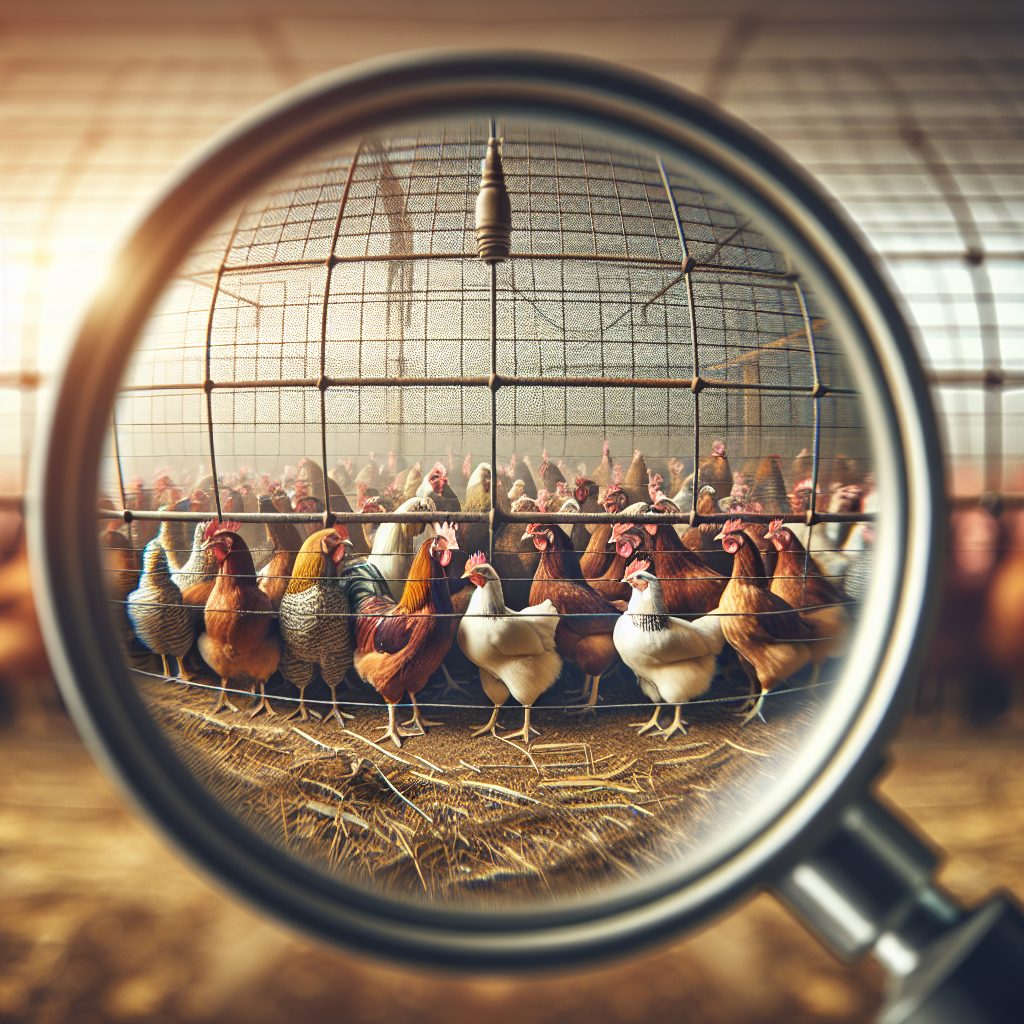If you’re a proud owner of chickens or considering keeping some feathered friends, it’s important to know about the essential vaccinations that can help protect your flock. Just like humans, chickens can be susceptible to contagious diseases that can easily spread and cause serious health issues. In this article, we’ll explore the key vaccinations every chicken owner should be aware of, ensuring the health and well-being of your feathered companions. So, let’s dive into the world of chicken vaccinations and discover how they can keep your flock happy and vibrant.
Avian Influenza
Vaccination Schedule
When it comes to keeping your chickens healthy and disease-free, vaccination is key. One of the most important vaccinations for chickens is for Avian Influenza. Avian Influenza, also known as bird flu, is a viral infection that can cause severe illness and death in poultry. To protect your flock, it is important to follow a vaccination schedule recommended by poultry health experts. A typical vaccination schedule for Avian Influenza includes an initial vaccination at the age of one day and a booster shot at three weeks of age. Additionally, annual revaccination is recommended to ensure continued protection against this highly contagious disease.
Symptoms and Impact
Avian Influenza can have devastating consequences for both commercial poultry operations and backyard flocks. The symptoms of Avian Influenza can vary depending on the strain of the virus, but common signs include respiratory distress, sudden death, decreased egg production, and diarrhea. In severe cases, infected birds may develop neurological symptoms such as paralysis or twisted necks. The impact of Avian Influenza extends beyond the health of your flock. Outbreaks of this highly contagious disease can result in significant economic losses due to mass culling and trade restrictions.
Prevention and Control Measures
Preventing and controlling Avian Influenza requires a multi-faceted approach. Vaccination is an essential tool in preventing the spread of the disease within your flock. However, it should be complemented with other preventive measures such as strict biosecurity protocols. These protocols may include limiting visitors to your flock, preventing contact with wild birds, and disinfecting equipment and poultry housing regularly. It is also important to report any signs of illness to your local veterinary authorities. By practicing good biosecurity and following vaccination schedules, you can minimize the risk of Avian Influenza in your flock and help protect the poultry industry as a whole.
Newcastle Disease
Vaccination Schedule
In addition to Avian Influenza, another crucial vaccination for your chickens is against Newcastle Disease. Newcastle Disease is a highly contagious viral infection that affects a wide range of bird species. Just like Avian Influenza, it is important to follow a vaccination schedule recommended by poultry health experts. Typically, the first Newcastle Disease vaccination is administered at one day old, with booster shots given at three weeks and eight to ten weeks of age. Annual revaccination is also recommended to maintain immunity against this disease.
Symptoms and Impact
Newcastle Disease can wreak havoc on your flock if left unchecked. Infected birds may exhibit a variety of symptoms, including respiratory distress, coughing, sneezing, and greenish diarrhea. In severe cases, neurological signs such as paralysis, twisting of the neck, and trembling may also be observed. The impact of Newcastle Disease can be catastrophic, leading to high mortality rates among infected birds. Moreover, the disease can be transmitted to humans, although it rarely causes illness in humans. Despite the low risk to humans, the economic consequences of a Newcastle Disease outbreak can be significant, as trade restrictions may be imposed on affected regions.
Prevention and Control Measures
Preventing and controlling Newcastle Disease requires a comprehensive approach. Along with vaccination, proper biosecurity measures are essential in reducing the risk of infection. This includes keeping your flock separated from wild birds, restricting access to your premises, and disinfecting equipment and clothing. Avoiding contact with other poultry flocks and promptly reporting any signs of illness to veterinary authorities are also crucial steps. By diligently following vaccination schedules and implementing robust biosecurity measures, you can help protect your flock from Newcastle Disease and limit the potential for outbreaks.
Infectious Bronchitis
Vaccination Schedule
Infectious Bronchitis is another viral disease that can have a significant impact on your chickens. Vaccination against Infectious Bronchitis is an essential component of a comprehensive disease prevention program. The vaccination schedule for Infectious Bronchitis typically starts with a primary vaccination at around nine days old, followed by booster shots at three and five weeks of age. Annual revaccination is recommended to maintain immunity against this disease.
Symptoms and Impact
Infectious Bronchitis primarily affects the respiratory system of chickens, leading to respiratory distress, coughing, and sneezing. Affected birds may also exhibit decreased egg production, poor hatchability, and kidney damage. The disease can cause significant economic losses due to reduced productivity and increased mortality rates. Additionally, the high level of contagion of Infectious Bronchitis makes it challenging to control and eradicate once established in a flock.
Prevention and Control Measures
Preventing and controlling Infectious Bronchitis requires a combination of vaccination and biosecurity measures. Vaccination is crucial in providing protection against the virus, while biosecurity practices help minimize the risk of introduction and spread of the disease. Implementing appropriate biosecurity measures such as strict isolation of new birds, regular disinfection of poultry housing, and avoiding contact with other poultry flocks are important steps to prevent the disease from entering your flock. Additionally, maintaining good hygiene practices and promptly reporting any signs of illness to veterinary authorities can aid in controlling the spread of Infectious Bronchitis.
Marek’s Disease
Vaccination Schedule
Marek’s Disease is a highly contagious viral illness that primarily affects young chickens. Vaccination is the most effective means of preventing Marek’s Disease. The vaccination schedule for Marek’s Disease involves administering the vaccine to day-old chicks through subcutaneous injection or in ovo vaccination. This vaccination provides lifelong protection against the disease.
Symptoms and Impact
Marek’s Disease attacks the nervous system of chickens, causing paralysis, weight loss, and generalized weakness. Affected birds may exhibit lameness, distorted feather development, and tumors affecting various organs. Marek’s Disease can have a significant impact on poultry operations as it leads to reduced growth rates, decreased egg production, and increased mortality rates. The virus can persist in the environment, making it challenging to completely eradicate from a flock.
Prevention and Control Measures
Prevention and control of Marek’s Disease largely rely on vaccination and strict biosecurity measures. Vaccinating chicks at an early age is crucial to provide lifelong protection. Biosecurity practices such as maintaining a clean and dry environment, preventing contact with wild birds, disinfecting equipment, and practicing all-in/all-out production systems can help minimize the risk of introducing and spreading the virus. Additionally, genetic selection for resistance to Marek’s Disease is an ongoing strategy in the poultry industry to further reduce the impact of this disease.
Coccidiosis
Vaccination Schedule
Coccidiosis is a parasitic disease caused by protozoan parasites of the genus Eimeria. Vaccination is an important tool in preventing and controlling Coccidiosis. Vaccines for Coccidiosis are commonly administered through the drinking water or orally. A typical vaccination schedule for Coccidiosis includes an initial vaccination at 1-3 days of age, followed by subsequent booster doses. The number and timing of booster doses may vary depending on the vaccine used and the specific needs of your flock.
Symptoms and Impact
Coccidiosis affects the intestinal tract of chickens, leading to diarrhea, weight loss, decreased growth rates, and sometimes mortality. Infected birds may also exhibit decreased feed intake, decreased egg production, and poor overall performance. The impact of Coccidiosis can be particularly significant in young birds, as it may impair their growth and development. Additionally, the disease can weaken the immune system, making affected birds more susceptible to other infections.
Prevention and Control Measures
Preventing and controlling Coccidiosis requires a combination of vaccination, good management practices, and biosecurity measures. Vaccination helps in reducing the severity of the disease and building immunity in the flock. In addition to vaccination, proper sanitation, including regular removal of feces and disinfection of poultry housing, is essential to minimize the risk of infection. Implementing strict biosecurity measures, such as limiting contact with other birds and preventing the introduction of contaminated materials, can further reduce the risk of Coccidiosis outbreaks.
Fowl Pox
Vaccination Schedule
Fowl Pox, also known as Avian Pox, is a viral disease that affects chickens worldwide. Vaccination against Fowl Pox is an important preventive measure. The vaccination schedule for Fowl Pox typically involves administering the vaccine through wing-web or subcutaneous injection. A single vaccination is usually sufficient to provide long-term immunity.
Symptoms and Impact
Fowl Pox manifests in two distinct forms: dry pox and wet pox. Dry pox primarily affects the skin, leading to the development of scabs and lesions on the unfeathered areas of the bird, such as the comb, wattles, and feet. Wet pox primarily affects the mucous membranes of the mouth, throat, and respiratory tract, resulting in the formation of nodules and lesions. Infected birds may exhibit decreased feed and water intake, breathing difficulties, and decreased egg production. The impact of Fowl Pox extends beyond the health of your flock, as it can result in reduced productivity and increased susceptibility to other diseases.
Prevention and Control Measures
Preventing the spread of Fowl Pox requires a combination of vaccination and biosecurity measures. Vaccinating your flock against Fowl Pox is crucial in preventing the disease and reducing its impact. Implementation of biosecurity practices such as isolating new birds, maintaining a clean and sanitary environment, and restricting access to your premises can help minimize the risk of introduction and spread of the virus. Good hygiene practices, such as regular cleaning and disinfection of poultry housing, are important in controlling the disease. Additionally, promptly reporting any signs of illness to veterinary authorities can aid in preventing the further spread of Fowl Pox.
Infectious Bursal Disease
Vaccination Schedule
Infectious Bursal Disease (IBD), also known as Gumboro Disease, is a highly contagious viral infection that affects young chickens. Vaccination is crucial in preventing and controlling IBD. The vaccination schedule for IBD typically involves administering a live attenuated vaccine through the drinking water or via spray. Vaccination is commonly done at an early age, usually around 10-14 days, and followed by a booster dose at 18-22 days of age.
Symptoms and Impact
IBD primarily affects the bursa of Fabricius, an organ involved in the development of the immune system in young chickens. Infected birds may exhibit diarrhea, dehydration, decreased feed consumption, and increased mortality rates. Additionally, IBD suppresses the immune system, making affected birds more susceptible to other infections. The impact of IBD can be significant, resulting in reduced growth rates, poor flock performance, and economic losses for poultry operations.
Prevention and Control Measures
Preventing and controlling IBD requires a combination of vaccination, good management practices, and biosecurity measures. Vaccination is a key preventive measure and should be timed appropriately for optimal protection. Strategic measures, such as providing clean drinking water, minimizing stressors, and maintaining appropriate flock density, are important in reducing the risk of IBD outbreaks. Good biosecurity practices, such as limiting contact with other poultry flocks, controlling vectors, and disinfecting equipment, are crucial in preventing the introduction and spread of the virus. Regular monitoring of the flock’s health status and prompt reporting of any signs of illness are essential for effective disease control.
Egg Drop Syndrome
Vaccination Schedule
Egg Drop Syndrome (EDS) is a viral disease that primarily affects laying hens, leading to a reduction in egg production and poor egg quality. Vaccination against EDS is an important measure to prevent and control the disease. The vaccination schedule for EDS usually involves administering a killed virus vaccine, either through injection or drinking water. The timing and frequency of vaccination may vary depending on the specific needs of your flock.
Symptoms and Impact
EDS primarily affects the reproductive system of hens, leading to decreased egg production, reduced egg quality, and an increased likelihood of egg abnormalities. Infected hens may lay soft-shelled or misshapen eggs, or they may stop laying altogether. The impact of EDS can be significant for commercial egg producers, as it may lead to lower egg yields and decreased profitability. Additionally, the disease can result in reduced hatchability of eggs, further exacerbating the economic losses.
Prevention and Control Measures
Preventing and controlling EDS relies on vaccination and good biosecurity practices. Vaccinating your flock is crucial in reducing the risk and severity of the disease. Additionally, implementing biosecurity measures such as maintaining a clean and hygienic environment, controlling pests, and preventing contact with wild birds can help minimize the risk of introduction and spread of the disease. Regular monitoring of egg production and quality, along with prompt reporting of any abnormalities, can aid in the early detection and control of EDS.
Salmonella
Vaccination Schedule
Salmonella is a bacterial infection that can cause serious health issues in both poultry and humans. Vaccination against Salmonella is an important measure to prevent the spread of the infection. The vaccination schedule for Salmonella may vary depending on the specific vaccine used and the specific needs of your flock. It is recommended to consult with poultry health experts to determine the most appropriate vaccination schedule.
Symptoms and Impact
Salmonella infection in chickens can lead to a variety of symptoms, including diarrhea, loss of appetite, lethargy, and decreased egg production. In severe cases, infected birds may develop systemic infections and die. Salmonella can also be transmitted to humans through the consumption of contaminated poultry products, leading to foodborne illnesses. The impact of Salmonella extends beyond the health of your flock, as outbreaks in poultry can result in significant economic losses and negative impacts on public health.
Prevention and Control Measures
Preventing and controlling Salmonella infections requires a multi-faceted approach. Vaccination plays a crucial role in reducing the risk of infection and limiting the spread of the bacteria within your flock. Good management practices, such as providing clean and sanitary conditions, separating sick birds, and practicing proper waste management, are essential to minimize the risk of Salmonella outbreaks. Additionally, strict biosecurity measures, such as preventing contact with wild birds and rodents, controlling pests, and practicing good hygiene, can help reduce the risk of introduction and spread of the bacteria. Regular monitoring for the presence of Salmonella and prompt reporting to veterinary authorities are also important in controlling the infection.
Mycoplasma Gallisepticum
Vaccination Schedule
Mycoplasma Gallisepticum (MG) is a bacterial infection that primarily affects the respiratory system of chickens, leading to respiratory distress, decreased egg production, and decreased overall flock performance. Vaccination against MG is an important measure to prevent and control the disease. The vaccination schedule for MG may vary depending on the specific vaccine used and the specific needs of your flock. It is recommended to consult with poultry health experts to determine the most appropriate vaccination schedule.
Symptoms and Impact
MG primarily affects the respiratory system, causing symptoms such as coughing, sneezing, nasal discharge, and conjunctivitis. Infected birds may exhibit decreased feed intake, decreased egg production, poor hatchability, and reduced growth rates. The impact of MG can be significant, leading to economic losses for poultry operations and decreased productivity of the flock. Moreover, MG is a chronic infection that can persist in a flock, making it challenging to completely eradicate.
Prevention and Control Measures
Preventing and controlling MG requires a comprehensive approach that includes vaccination and biosecurity measures. Vaccinating your flock against MG is crucial in preventing the disease and reducing its impact. Implementing strict biosecurity practices, such as limiting contact with other poultry flocks, preventing the introduction of infected birds, and practicing appropriate quarantine measures, can help minimize the risk of MG outbreaks. Regular monitoring of the flock’s health status and prompt reporting of any signs of illness are essential for effective disease control. Additionally, good management practices, such as proper ventilation, feed management, and stress reduction, can contribute to maintaining the overall health and well-being of your flock.
In conclusion, vaccination is a critical aspect of maintaining the health and well-being of your chicken flock. By following recommended vaccination schedules and implementing effective biosecurity measures, you can help protect your birds from devastating diseases. Avian Influenza, Newcastle Disease, Infectious Bronchitis, Marek’s Disease, Coccidiosis, Fowl Pox, Infectious Bursal Disease, Egg Drop Syndrome, Salmonella, and Mycoplasma Gallisepticum are just some of the diseases that can have a significant impact on your flock if left untreated. However, by staying proactive and attentive to the health of your chickens, you can ensure a thriving and disease-free flock. Remember to always consult with poultry health experts for specific guidance on vaccination schedules and disease prevention measures tailored to your flock’s needs.




